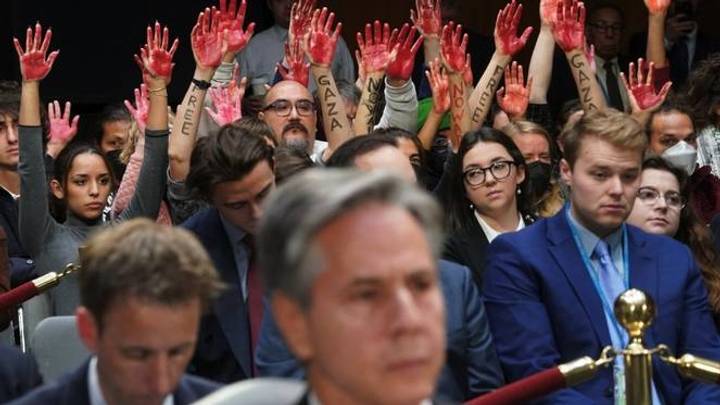Following the U.S. sanctions on Sudan’s Rapid Support Forces (RSF) for alleged genocide, Sudanese observers and activists have highlighted what they see as a double standard in Washington’s approach, pointing to U.S. complicity in the Gaza crisis.
U.S. Secretary of State Antony Blinken announced the sanctions on Tuesday, accusing the RSF and allied militias of targeting civilians, committing ethnic killings, and preventing access to humanitarian aid. The 18-month conflict between Sudan’s army and the RSF has left tens of thousands dead and millions displaced, creating a dire humanitarian crisis.
However, Sudanese commentators and activists have called out the U.S. for ignoring similar atrocities in Gaza, where Israel, a close U.S. ally, is accused of committing war crimes. Activists argue that the crimes Blinken attributes to the RSF—including targeting fleeing civilians and systematic ethnic violence—are mirrored in Gaza, with U.S. support enabling Israel’s actions.
Muhammad Shehada, a journalist based in Palestine, noted that the very crimes listed by Blinken to justify sanctions against the RSF are also present in Gaza. “Literally every single one of the crimes you cite to conclude a genocide is happening in Sudan are being committed by Israel in Gaza, with America funding and shielding them,” Shehada wrote.
Prominent voices, including Kenneth Roth, former executive director of Human Rights Watch, have called for consistent global accountability for mass killings, whether in Sudan or Gaza. “The mass killing of civilians in Sudan and Gaza should be recognized and stopped,” Roth stated.
Sudan’s Foreign Ministry has joined the chorus, accusing the U.S. of politicizing genocide determinations. Observers argue that U.S. military aid to Israel—amounting to $3.8 billion annually—undermines its credibility as a neutral arbiter of justice.
Since October 2023, the Gaza conflict has reportedly claimed over 46,000 Palestinian lives, with entire neighborhoods flattened and thousands more feared buried under rubble. Allegations of war crimes, including targeted killings of civilians, mass graves, and systematic destruction of infrastructure, have led to calls for accountability at the International Criminal Court.
As the international community grapples with these crises, Sudanese voices continue to challenge what they view as a selective application of justice by the U.S., questioning whether a nation complicit in alleged atrocities can credibly judge others.


